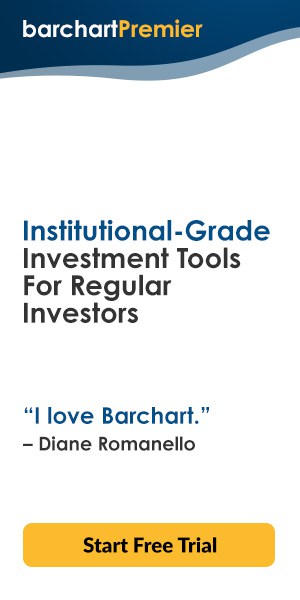Introduction To Covered Calls On Vti
Covered calls are a popular options strategy used by investors seeking to generate additional income from their stock holdings. When applied to Vanguard Total Stock Market ETF (VTI), one of the most widely traded exchange-traded funds in the market, it offers an attractive opportunity for income-focused investors. VTI, which tracks the performance of the CRSP US Total Market Index, provides exposure to a broad range of US stocks across various sectors and market capitalizations.
By employing covered calls on VTI, investors can potentially enhance their returns by selling call options against their existing VTI shares. This strategy involves selling call options contracts with a strike price above the current market price of VTI shares held in one’s portfolio. By doing so, investors earn premiums upfront while giving up potential upside beyond the strike price.
Understanding The Basics Of Vti
VTI, or Vanguard Total Stock Market ETF, is an exchange-traded fund that aims to track the performance of the CRSP US Total Market Index. This index represents nearly 100% of the investable U.S. stock market, making VTI a popular choice among investors seeking broad market exposure. As an ETF, VTI offers several advantages over traditional mutual funds, including lower expense ratios and intraday trading capabilities.
Its diversified portfolio includes stocks from large, mid-size, and small companies across various sectors. Covered calls on VTI refer to a strategy where an investor sells call options on their VTI shares in exchange for receiving premium income. By doing so, investors can generate additional returns on their investment while potentially limiting their upside potential. However, it’s important to note that covered calls come with certain risks.
What Are Covered Calls?
Covered calls are a popular options strategy that involves selling call options on an underlying stock or exchange-traded fund (ETF) that you already own. In the case of covered calls on VTI (Vanguard Total Stock Market ETF), investors would sell call options on their VTI shares.
By selling these call options, investors collect a premium from the buyer of the option. This premium provides additional income to the investor, which can enhance overall returns and potentially offset downside risk.
However, it’s important to note that by selling covered calls, investors cap their potential upside gains on the underlying stock or ETF. If the price of VTI rises above the strike price of the sold call option, investors may be obligated to sell their shares at that predetermined price.
Covered calls can be an attractive strategy for income-focused investors who want to generate additional cash flow from their existing investments while still participating in market gains up to a certain point.
Benefits And Risks Of Implementing Covered Calls On Vti
Implementing covered calls on VTI, the Vanguard Total Stock Market ETF, offers several benefits for investors. Firstly, covered calls generate additional income as the strategy involves selling call options against existing VTI holdings. This income can enhance overall portfolio returns and provide a consistent stream of cash flow. Secondly, covered calls can help mitigate downside risk by providing a cushion in case of potential price declines in the underlying security.
By selling call options, investors receive premiums that partially offset any losses incurred. However, implementing covered calls on VTI also carries certain risks. One major risk is the potential opportunity cost of limiting upside potential. If the price of VTI rises above the strike price of the sold call option, investors may miss out on significant gains beyond that point.
Strategies For Implementing Covered Calls On Vti
Implementing covered calls on VTI, the Vanguard Total Stock Market ETF, can be an effective strategy for generating income and potentially enhancing returns. One approach is to sell out-of-the-money call options on VTI, which allows investors to collect premium income while maintaining ownership of the underlying shares. This strategy is particularly suitable for investors who have a neutral or slightly bullish outlook on VTI.
To implement this strategy successfully, it is important to carefully select the strike price and expiration date of the call options. Choosing a strike price that is slightly above the current market price of VTI can maximize income potential while still providing some room for capital appreciation. Additionally, selecting an expiration date that aligns with one’s investment horizon is crucial. Investors should also consider managing their positions actively by monitoring market conditions and adjusting their covered call positions accordingly.
This may involve rolling up or out the call options as necessary to adapt to changing market dynamics.
Case Study: A Successful Implementation Of Covered Calls On Vti
In this case study, we examine a successful implementation of covered calls on VTI, the Vanguard Total Stock Market ETF. The strategy involves selling call options on VTI holdings to generate additional income while still maintaining ownership of the underlying shares. The investor in this case study started by purchasing a significant position in VTI, which provided exposure to a broad range of U.S. stocks.
They then proceeded to sell call options against their VTI holdings, typically at strike prices slightly above the current market price. By employing this strategy over a period of several months, the investor was able to generate consistent premium income from the sold call options. These premiums not only added to their overall investment returns but also acted as a cushion against potential downside risks.
Furthermore, since VTI is an ETF with high liquidity and low expense ratios, it proved to be an ideal underlying asset for implementing covered calls.
Conclusion: Is Investing In Covered Calls On Vti Right For You?
Conclusion: Is Investing in Covered Calls on VTI Right for You? Investing in covered calls on VTI can be a suitable strategy for certain investors seeking to generate additional income from their holdings while still benefiting from the potential upside of the Vanguard Total Stock Market ETF (VTI). By selling call options against their VTI shares, investors can collect premiums, creating an extra income stream that can help offset potential losses or enhance overall returns.
However, it is important to consider certain factors before implementing this strategy. Covered calls limit the potential upside of the underlying stock, as investors are obligated to sell their shares if the price surpasses the strike price of the call option. Additionally, market volatility and timing can significantly impact the effectiveness of this strategy. Before deciding whether investing in covered calls on VTI is right for you, carefully evaluate your risk tolerance, investment goals, and knowledge of options trading.



